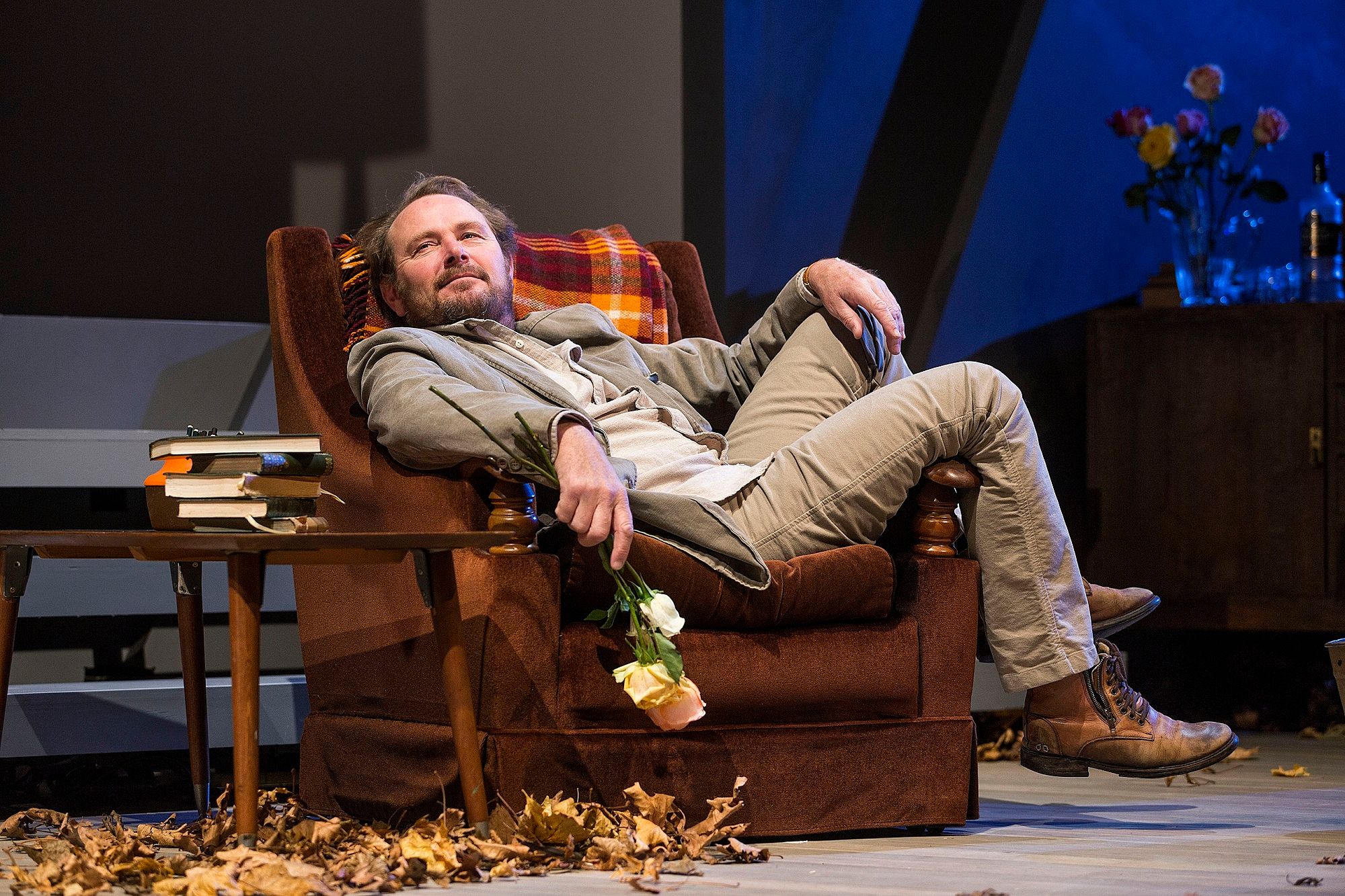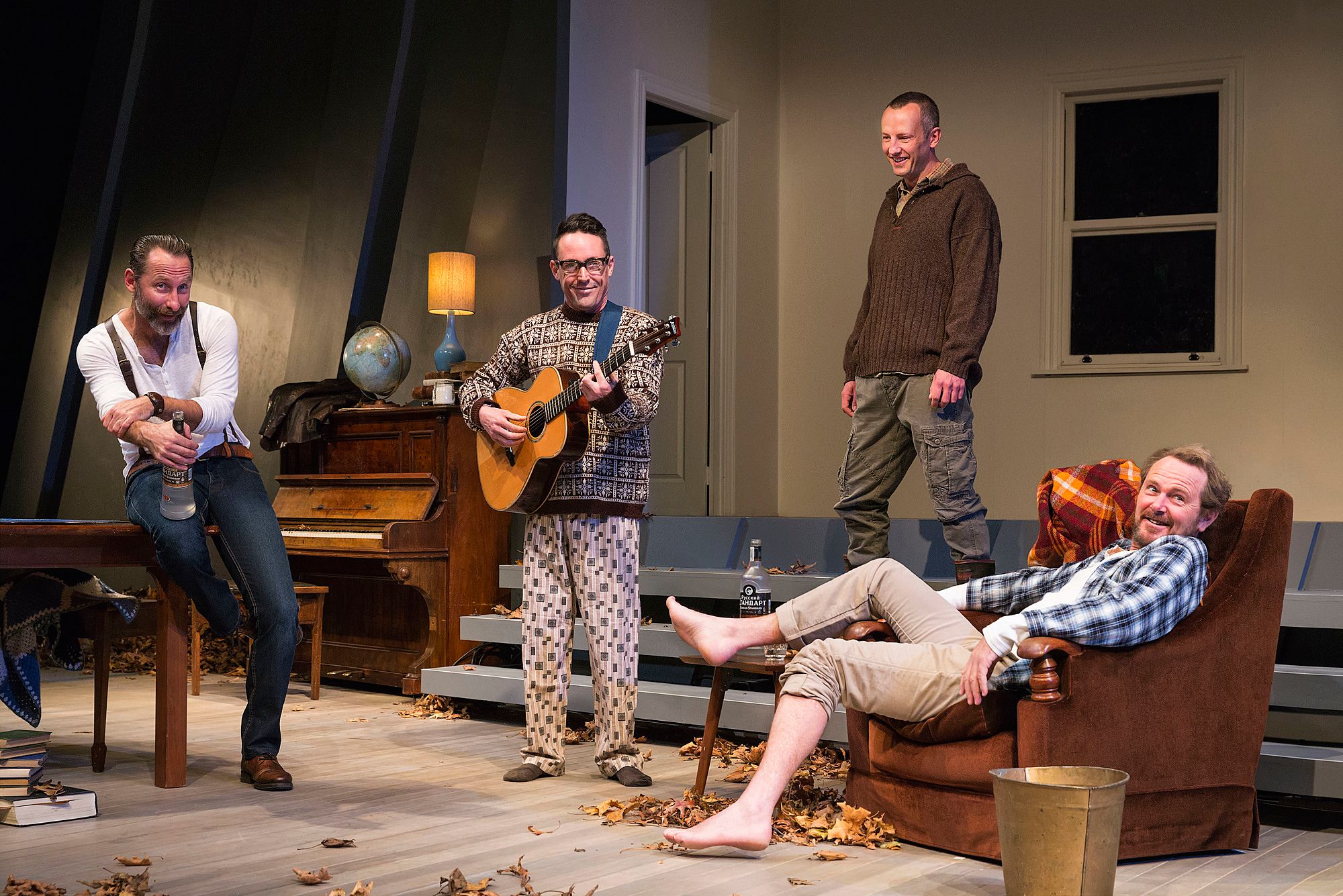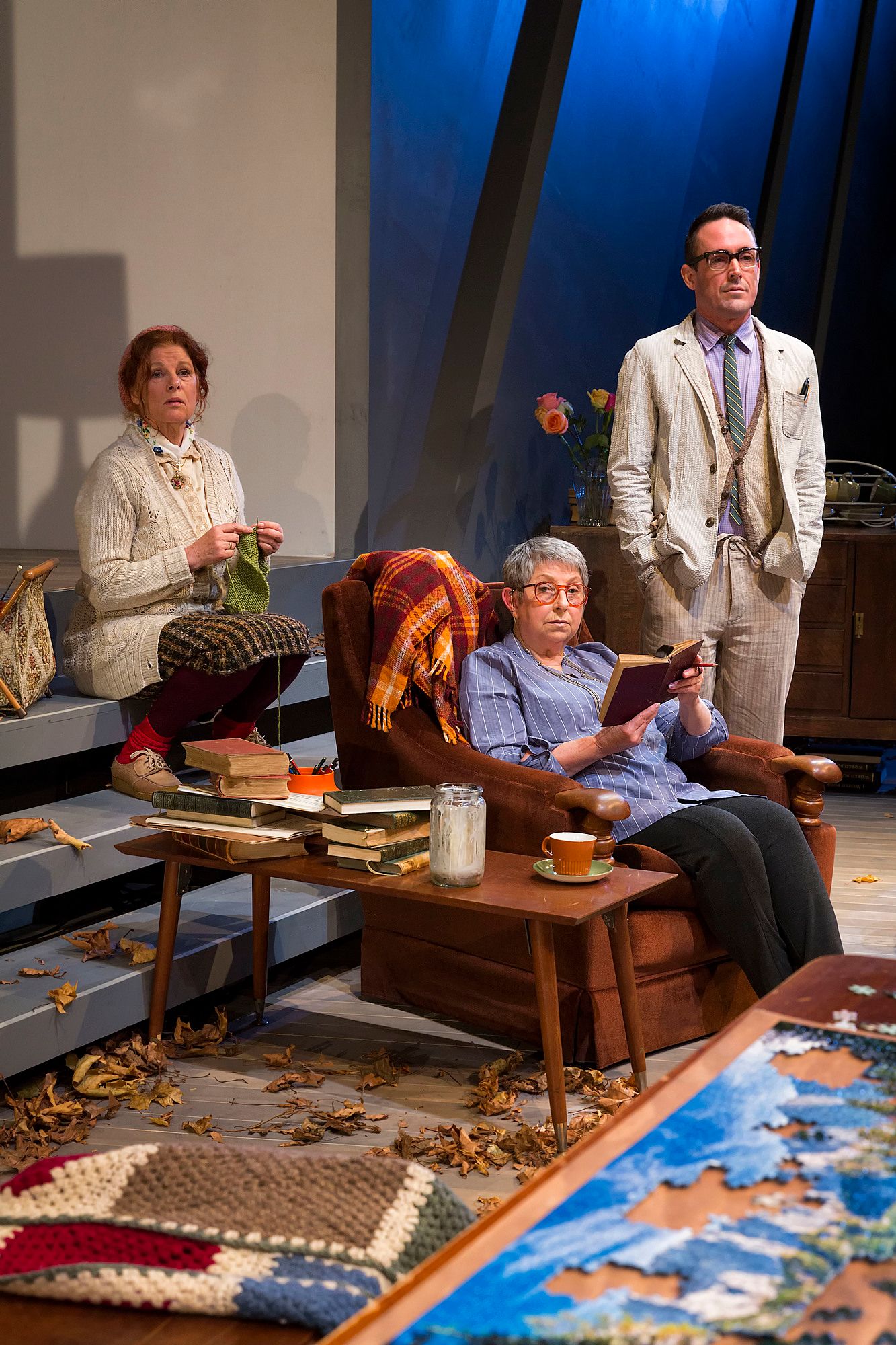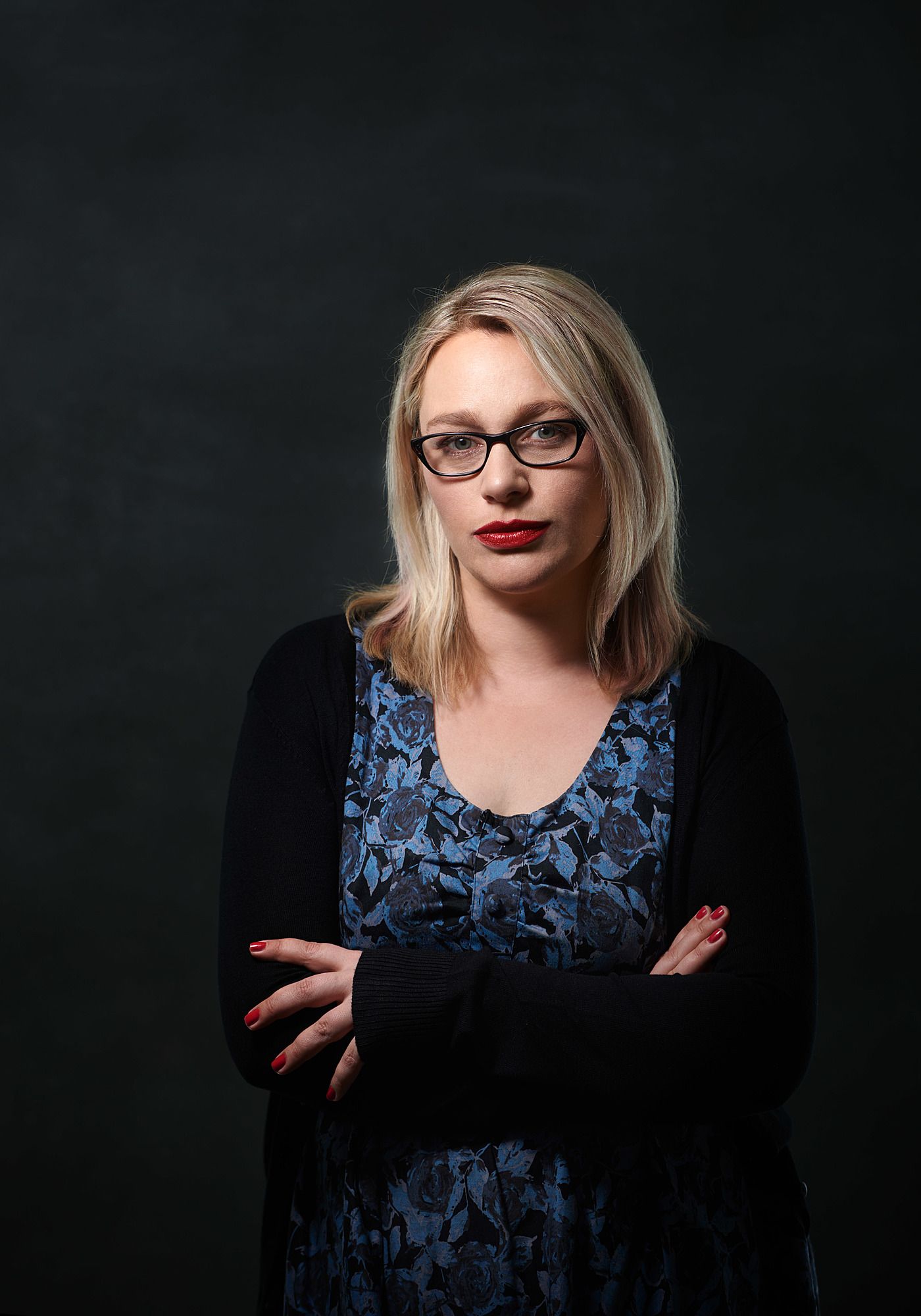Unmoored Melancholy: A Review of Uncle Vanya
Erin Harrington reviews Chekhov's classic.
We're excited to bring you this review of The Court Theatre's production of Uncle Vanya which marks the first of many more reviews of Christchurch theatre. Erin Harrington reviews Chekhov's classic and finds a production consisting of beautiful elements somewhat detached from each other.
Anton Chekhov’s Uncle Vanya posits that boredom and idleness are dangerous states; they transform restlessness into recklessness and uncouple people, even unhappy people, from that which moors them. In Shane Bosher’s production of celebrated American playwright Annie Baker’s adaptation for The Court Theatre, 47-year-old estate manager Vanya, alongside his friends and extended family, slope around his family’s decrepit provincial mansion in the oppressive mugginess of early autumn, slumping in arm chairs, flicking through books, picking at a jigsaw puzzle, swigging vodka and tepid tea, and swatting at flies. It feels like the enforced, prickly idleness at the end of a too-long summer holiday, but in Chekhov’s play there is no sense what ‘after’ might look like, or even when this stupor might end.
This stasis is existential as well as physical, for Uncle Vanya asks what it means to live a life. Does a ‘good’ or a meaningful life require self-fulfilment? Must one produce something great, or experience something profound to have fully lived? Should we live our lives in the pursuit of art, beauty and the sublime? Or does self-sacrifice and a life shaped by hard, often thankless work have its own sense of quiet nobility? The play’s torpid sense of ennui and stagnation is undercut by a persistent sense of wry, mordant humour, lacing the domestic entropy with bursts of startled wit and dips of droll bathos. Nonetheless, despite the strength of Annie Baker’s 2012 adaptation, Shane Bosher’s production lacks a firm centre. It really struggles to achieve the complex, sweet-and-salty mixture of melancholy, poignancy and grace that you must demand from a production of any Chekhov play, no matter the translation or adaptation. In addition, where the engine of the play is powered by the characters’ pent up energy and increasing frustration, this production too often stalls.
It really struggles to achieve the complex, sweet-and-salty mixture of melancholy, poignancy and grace that you must demand from a production of any Chekhov play.
This is a pity, because the play brims with vexation. Ivan Petrovich – Uncle Vanya (Stephen Lovatt) – is a once vital man now defined by his sense of disappointment. The character’s unremitting sadness is interlaced with his fear that his life has slipped away from him. He’s spent nearly his entire adult life eking out a meagre existence on the estate of his beloved, now deceased sister, so that he, his mother Maria (an under-utilised Yvonne Martin) and his diligent niece Sonya (a very good Sophie Hambleton) might send the profits to Sonya’s father Alexander (Geoffrey Heath), who usually lives in the city but has been visiting with his second wife, 27-year-old Yelena (Esther Stephens, strong and elegant).
Alexander is an elderly, vain, gout-ridden scholar whose work is - painfully - not as important or even as good as his family had hoped. Yelena is an enchantingly beautiful yet utterly idle woman; Vanya, dazzled by her youth, beauty and poise, lusts after her. The couple’s presence on the estate has tipped its harmonious, productive monotony into this thick fog of bewilderment, due to both Alexander’s vacillating demands and Yelena’s capacity to bewitch.
The character who connects most with the audience in this production is Edwin Wright’s eccentric, environmentalist doctor Astrov, the object of plain-faced Sonya’s unrequited affection. He is remarkably vital, prickly and impassioned, and offers a contrast to the suffocating flatness. (However when played with these qualities, it does mean that Astrov’s swelling fascination with Yelena reads as less an awakening and more a distraction.) Pottering around and through the action is the slightly dippy and remarkably content nanny Marina, played with warmth by Darien Takle. She is constantly knitting and I find her gentle, satisfied industry very funny when contrasted against the others’ existential grievances.
I’m particularly fond of the way that Rachael Walker’s tired, lived-in, leaf-strewn set offers interesting levels and playing spaces.
As is almost invariably the case with other mainstage productions at The Court Theatre, the show is beautifully designed and lit. I’m particularly fond of the way that Rachael Walker’s tired, lived-in, leaf-strewn set offers interesting levels and playing spaces, while also solving the knotty problem of indoor-outdoor flow. The design offers a tangible sense of environment, especially as rain pelts down outside during a storm and a leak in the roof becomes a source of comic relief.
The set, costumes, and style of performances attempt to render the world of the play emotionally specific yet temporally and geographically dissolute. This is a strong artistic choice honouring Baker’s no-frills adaptation, which opts for directness and intimacy. However, scratchy boredom is too often swallowed by lethargy, and as a living, moving entity, the entire production struggles to express the frisson that is embedded within the play’s sense of idleness.
The slipperiness of the anachronistic setting gives way to an overall indistinctness that renders the production unfocused and a little unmoored. There are tonal inconsistencies that make it difficult to read as a coherent, well-balanced whole. This is best expressed through some of the choices of contemporary music. We open with Harry Nilsson's One (Is the Loneliest Number); erotic longing is marked with Chris Isaak's Wicked Game; during the break we are treated to Iggy Pop's Lust for Life and REM's It's the End of the World As We Know It (And I Feel Fine). Given the gorgeous complexity of Chekhov's characterisation, in which rich interior lives and existential frustration are expressed subtly through gesture, touch, dialogue and interaction, these overly literal cues underestimate the intelligence of the audience and the labour of the actors, and are quite jarring. The conceptual leap required to accept such cues as droll articulations of existential angst isn’t earned.
This perplexity extends to the performances and characterisations. Baker’s adaptation has been widely praised for its immediacy and its use of contemporary vernacular, and while the term ‘accessible’ can be something of a backhanded compliment, the demotic language ensures that the frustrations of the characters are painfully familiar in their articulation. This colloquial turn is a potential trap, though; at times the actors’ diction is muddy, rushed and difficult to hear (especially from near the back), particularly when characters are speaking upstage. This might be rehabilitated in other ways, but as the action uncoils very few of the characterisations are fleshed out with substantial complexity. Some of the supporting characters, such as comically pathetic family friend Waffles (Greg Cooper, genial and goofy), who is financially dependent on Vanya and his family, and hired worker Yefim (Jared Corbin), barely justify their presence. They don’t enrich the world of the play as much as one would hope and it’s as if their presence is offered by the production as self-evident. Most importantly, the central love triangle, which is, of course, doomed before it’s even started, doesn’t have the spark that would give the audience at least a sense of hope before its inevitable dissolution; no spark of hope, no sense of loss.
Sonya's final, elegiac speech beautifully – and finally! – summons up the complex sense of weariness, pride, irredeemable sadness and bittersweet yearning that I've been waiting for all night.
It’s not that moments of complexity aren't present; they simply haven't been teased out sufficiently. That said, there are certainly moments where everything coalesces. Vanya's violent, pistol-swinging outburst, prompted by Alexander’s rather petty and selfish suggestion that his family sell the estate that he’s laboured on for 25 years, galvanises the cast, injecting much-needed vitality into the suffocating environment. It’s also the first time that I really believe in the true depths of the character’s overwhelming sadness and vulnerability. As Astrov sits near Vanya in an attempt to console him, lights positioned downstage cast large shadows of the two men on the wall behind; this lovely image paints the lives of the two as both painfully small and human, yet immense in their emotional depth. Sonya's final, elegiac speech, in which she praises the melancholic virtue of a life lived through toil and graft, beautifully – and finally! – summons up the complex sense of weariness, pride, irredeemable sadness and bittersweet yearning that I've been waiting for all night. It’s gorgeous. It’s a pity that these moments, like the characters' happiness, are fleeting.
The applause at the end is warm but not sustained; the woman beside me is pretty happy but my companion is definitive in his dislike. Only half of the row of Russian women behind us come back after the break. I arrive enthusiastic but come away frustrated and disappointed. The Court Theatre has terrific artistic resources: an immensely talented technical team, a fine performance space, access to excellent performers, and a great deal of public good will. Yet, in recent years, beyond a few outstanding individual shows, its varied mainstage productions have been consistent only in their inconsistency. Chekhov is a gift, but this production feels as unmoored as its titular character.
Uncle Vanya runs from 13th May – 3rd June at The Court Theatre. Tickets available here.



